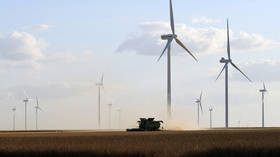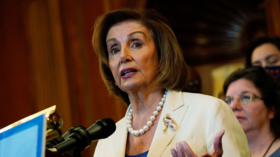After decades of reliance on oil & gas, Russia starts preparations to adapt economy for global green energy transition – reports

The Russian government is to create a set of working groups to help the country’s economy adapt to the global energy transition, as the international demand for hydrocarbons decreases due to the development of alternative sources.
That’s according to a source cited by Moscow business daily RBK, which revealed that Prime Minister Mikhail Mishustin has put First Deputy Prime Minister Andrei Belousov in charge of the new initiative. At the initial stage, the working groups will identify the risks and opportunities of the global energy transition for the Russian economy, with the plan to assess all scenarios and work out the optimal route for the country to take.
The groups will focus on scientific support, adapting the already-existing industry, restructuring energy projects and protecting the environment. The so-called energy transition refers to a gradual worldwide change away from fossil fuel production and consumption to renewable energy sources and nuclear power. In June, Deputy Prime Minister Alexander Novak revealed that Russia is already changing tack, noting that 60% of all energy generation capacity commissioned in the country in 2020 was either solar or wind power. In recent years, revenue from oil and gas has become a much smaller part of the government’s budget.
Also on rt.com Russia will be world’s leading ‘blue’ hydrogen exporter by 2030 – GazpromWith hydrocarbons being such a significant part of the Russian economy, moving into the green energy market is regarded as being of the utmost importance. Last month, former deputy prime minister Anatoly Chubais revealed that the global rejection of hydrocarbons could cost Russia 10 percent of its GDP, a result that he called “more than serious.” Chubais currently works as President Vladimir Putin’s representative on sustainable development and coordination with international organizations.
In recent years, Putin has spoken more regularly about climate change, encouraging businesses around the country to cut down on their emissions. Speaking last year to the Valdai Club think tank, he called for an end to “unrestrained and unlimited consumption,” noting that tensions regarding climate change had “reached a critical point.”
READ MORE: Russia ramps up its hydrogen energy ambitions
“It affects pipeline systems, residential districts built on permafrost, and so on,” Putin explained. “If as much as 25% of the near-surface layers of permafrost – which is about three or four meters – melts by 2100, we will feel the effect very strongly.”
Like this story? Share it with a friend!













